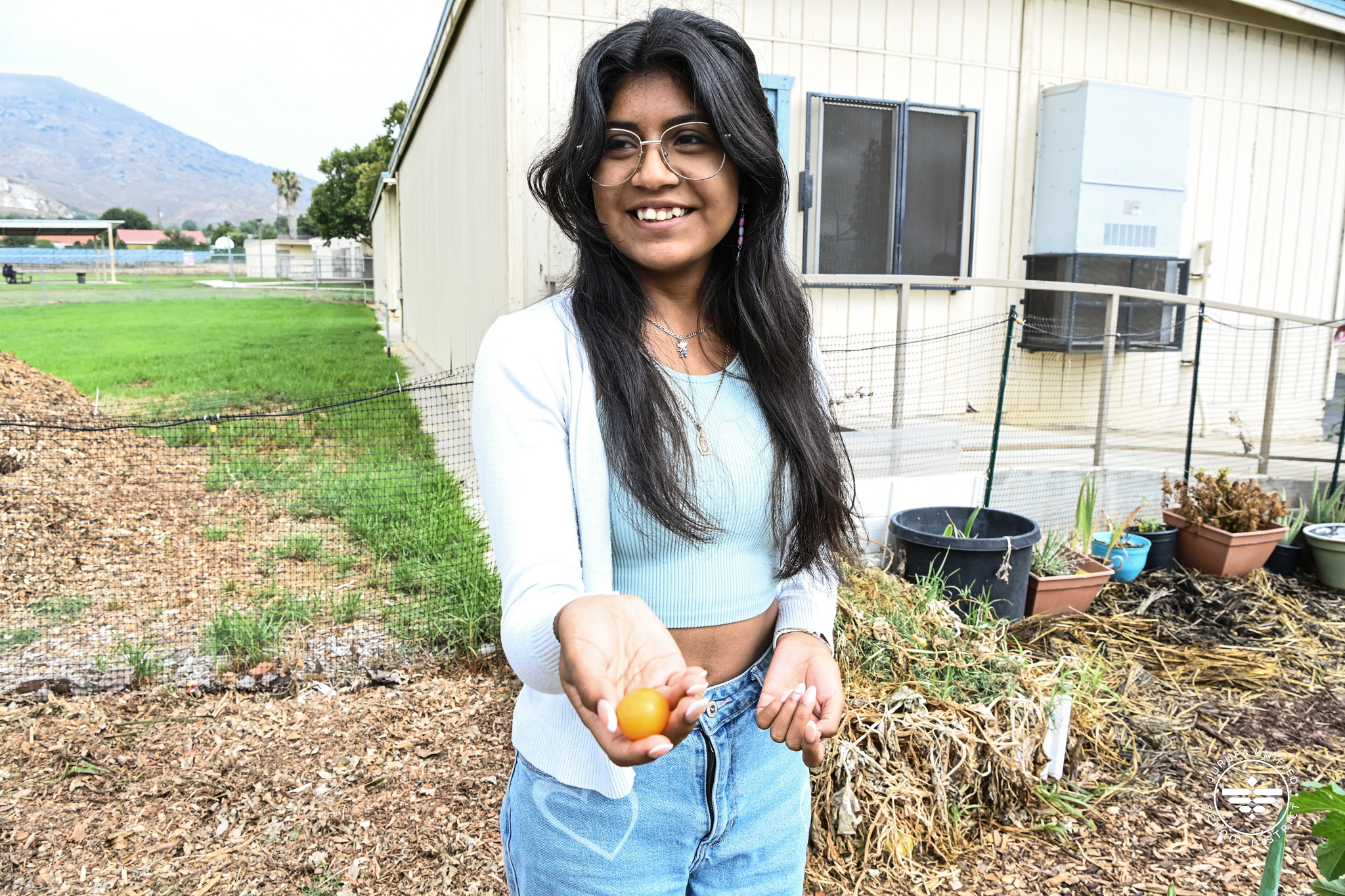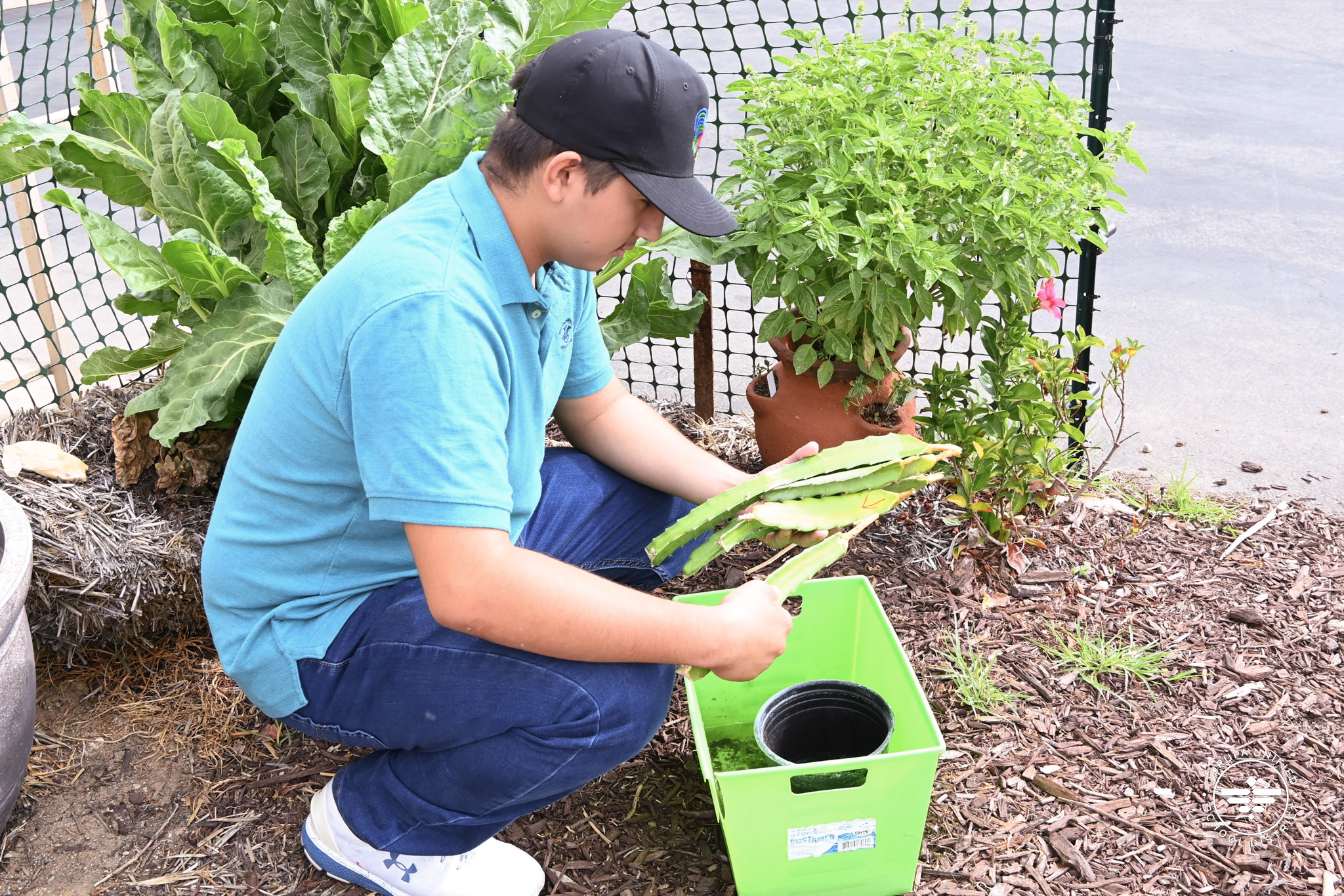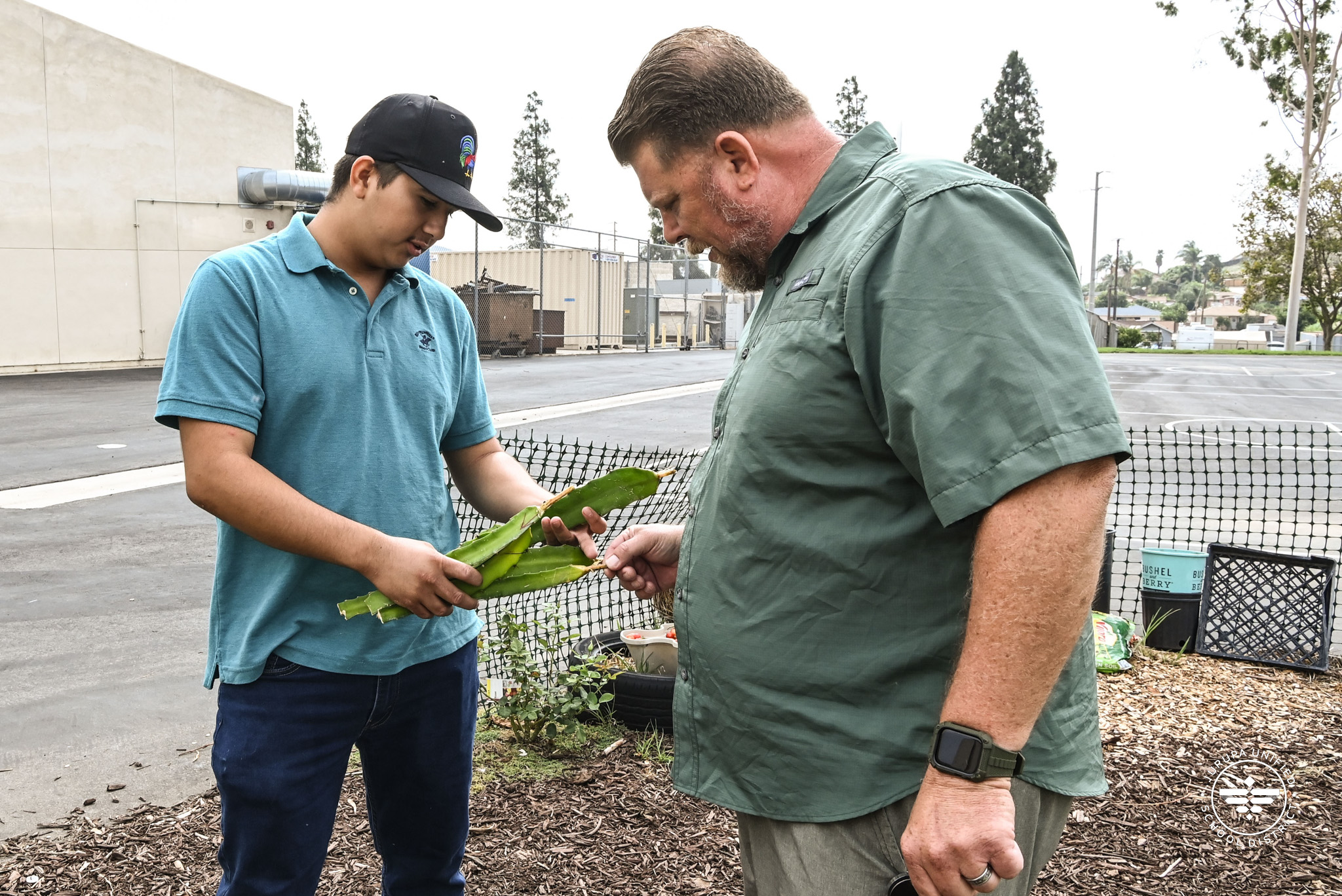 Pumpkins hide among twisted vines just starting to turn from green to an autumn ochre. Butterflies flit among the bright yellow petals of zinnias. Recently picked spaghetti squash, juicy tomatoes, and eggplants sit on a bale of hay, available for anyone who would like to take them.
Pumpkins hide among twisted vines just starting to turn from green to an autumn ochre. Butterflies flit among the bright yellow petals of zinnias. Recently picked spaghetti squash, juicy tomatoes, and eggplants sit on a bale of hay, available for anyone who would like to take them.
Futures also grow in this garden. Students in Mr. Umbarger’s sustainable agriculture class are immersed in scientific discovery as they spend time in this tiny paradise. In just a few months, the garden grew from a club project to a class, to a popular activity that engages students of many backgrounds.
“I've seen these kids coming out of their shells and I’ve seen the personalities expanding. It’s incredible to see how they all want to be part of it,” Mr. Umbarger said.
Mr. Umbarger said the inspiration for the garden came after he began a vermiculture activity with students as an expanded learning opportunity. The activity involved growing worms and then using their castings to create nutrient-rich compost and “worm tea.”
“Some of the kids said we need to use this on some plants.” I said, ‘hey, what if we just did a small garden?’”
After doing some research and looking into what other districts and schools have done, Mr. Umbarger successfully pitched an idea to teach a class on sustainable agriculture to marry science with a project students already enjoyed
 The students learned about things like making mulch and controlling pests naturally. They also planted a lot of seeds, which Mr. Umbarger watered and cared for during the summer months.
The students learned about things like making mulch and controlling pests naturally. They also planted a lot of seeds, which Mr. Umbarger watered and cared for during the summer months.
“They left and there were these little plants and seeds and they came back and it was just all overgrown and crazy and just a true blessing,” he said.
Students enjoy learning from the garden as they plant, harvest crops, monitor the soil, and work to manage pests and weeds naturally.
“It’s a balance,” Mr. Umbarger said. “It’s a lot more work, but it’s so much better for the plant itself and when we put it into our bodies, we know we’re getting something organic…in its purest form.”
Some of the class’s organic produce already is being used in the Nueva Vista kitchen. As plans to expand the garden take hold, Mr. Umbarger hopes to have enough bounty to share with other schools and the community.
Meanwhile, the garden is inspiring students who see the many possibilities taking root.
Senior Josue Pelayo joined the class because he has developed a love of the science of sustainable agriculture and would like to study agronomy, the science of soil management, and crop production. He said he enjoys gardening to “see the process. You learn from it and you learn what to do in the current season or the future seasons. You have to have patience.”
 Senior Barbara Fonseca shares tomatoes with her mom, who uses them to make salsa. She said she can use what she has learned to help her family’s business.
Senior Barbara Fonseca shares tomatoes with her mom, who uses them to make salsa. She said she can use what she has learned to help her family’s business.
“My family has a catering business and this sustainable agriculture class can help us in maybe starting our garden and no longer having to go to the store and buy expensive products,” she said.
Mr. Umbarger said the skill and happiness students cultivate in the garden are just as important as the scientific knowledge they gain.
“I just want to pass it on and hopefully the passion goes to them,” he said.

